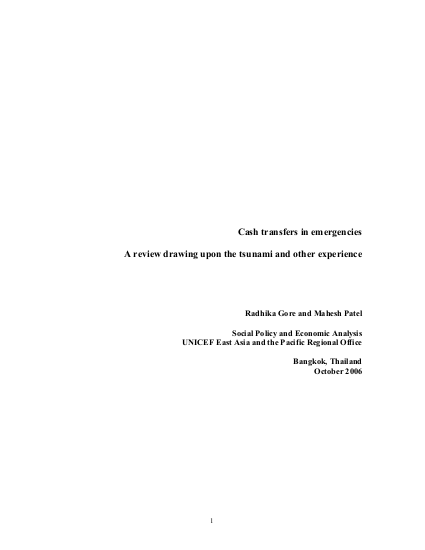
Cash transfers involve providing cash or vouchers directly to households, as opposed to providing a service or a commodity. Cash transfers have long been used to address social and economic vulnerabilities such as poverty, old age, disability or unemployment and to complement household income in times of exposure to shock. Governments and international organizations implemented a range of cash initiatives in the tsunami- affected areas, where local conditions were amenable to delivering cash: there were functioning markets and infrastructure not far from the damaged areas, and the affected countries were largely self-sufficient in food before and after the disaster.